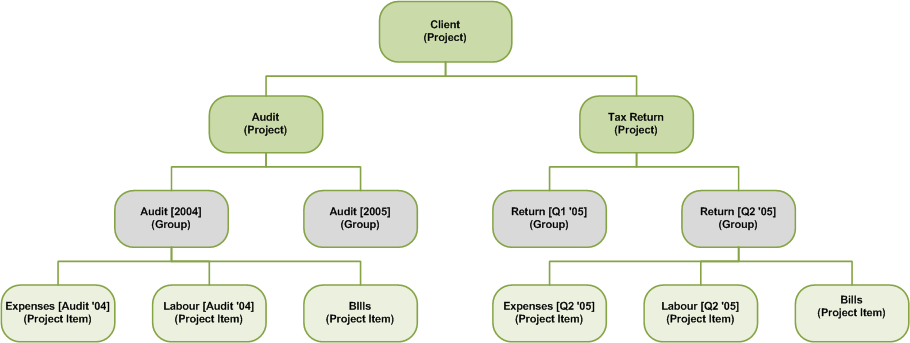A company is organising an exhibition event. For this event, there are two main areas set up as projects, putting on the exhibition and advertising the event.
For the exhibition project, there are groups for expenditure and revenue. Expenditure includes items such as stand construction and venue hire, whilst the revenue group includes all the income such as exhibitor sales for the stands.
For the advertising project, there are also grouping levels for expenditure and revenue. Expenditure includes items such as designing the advertisement artwork and the printing costs of publishing the advert.

